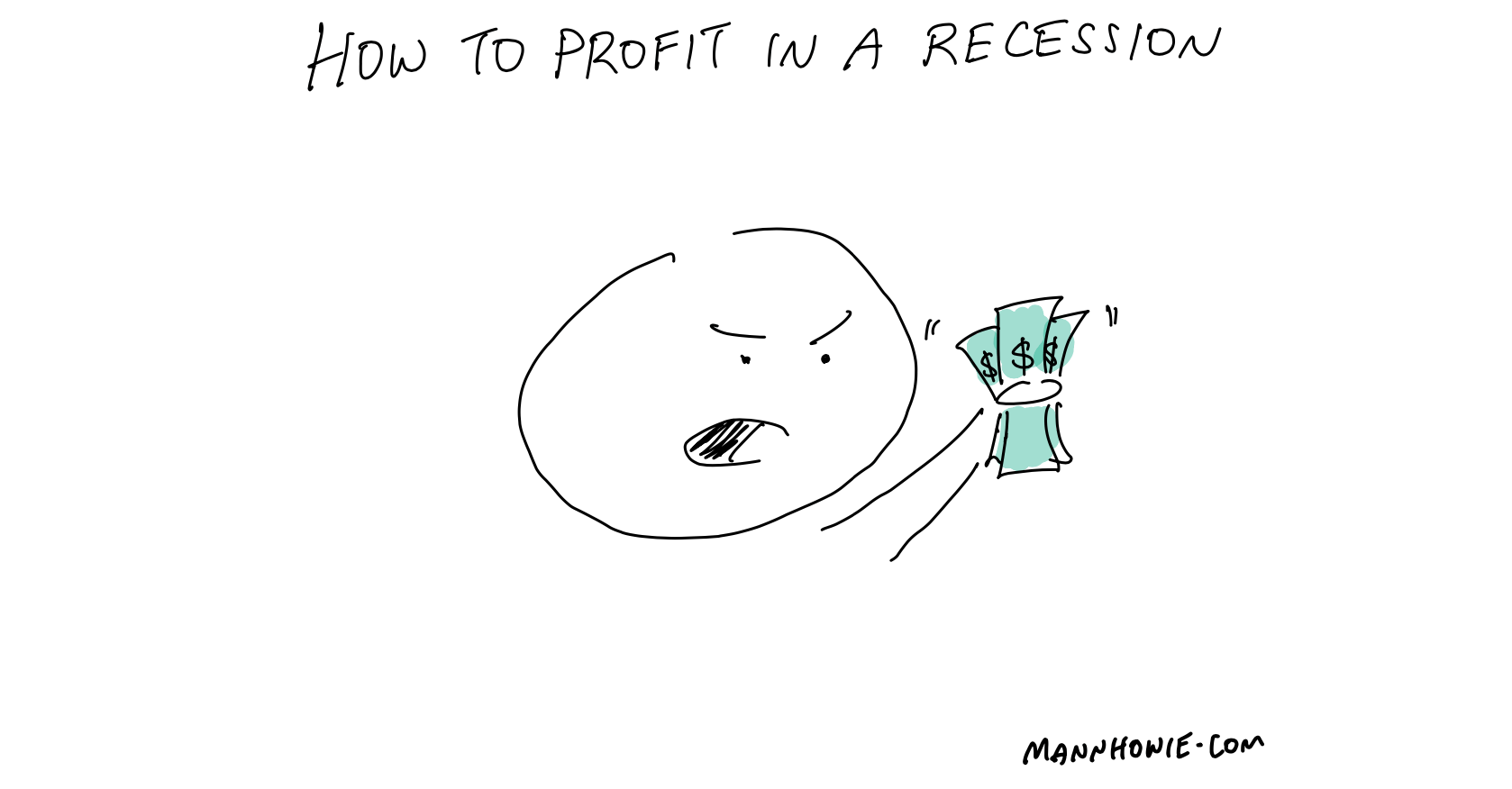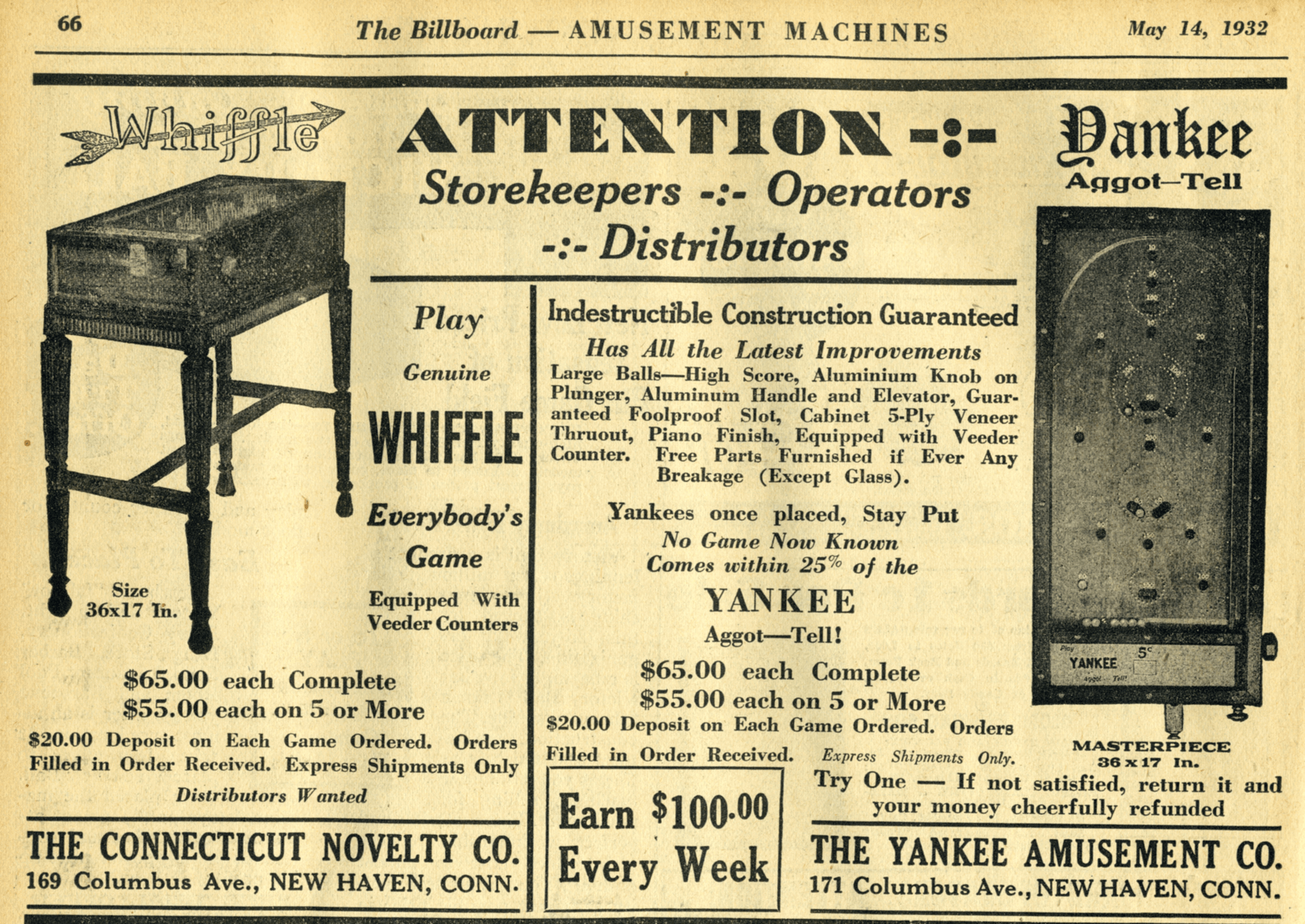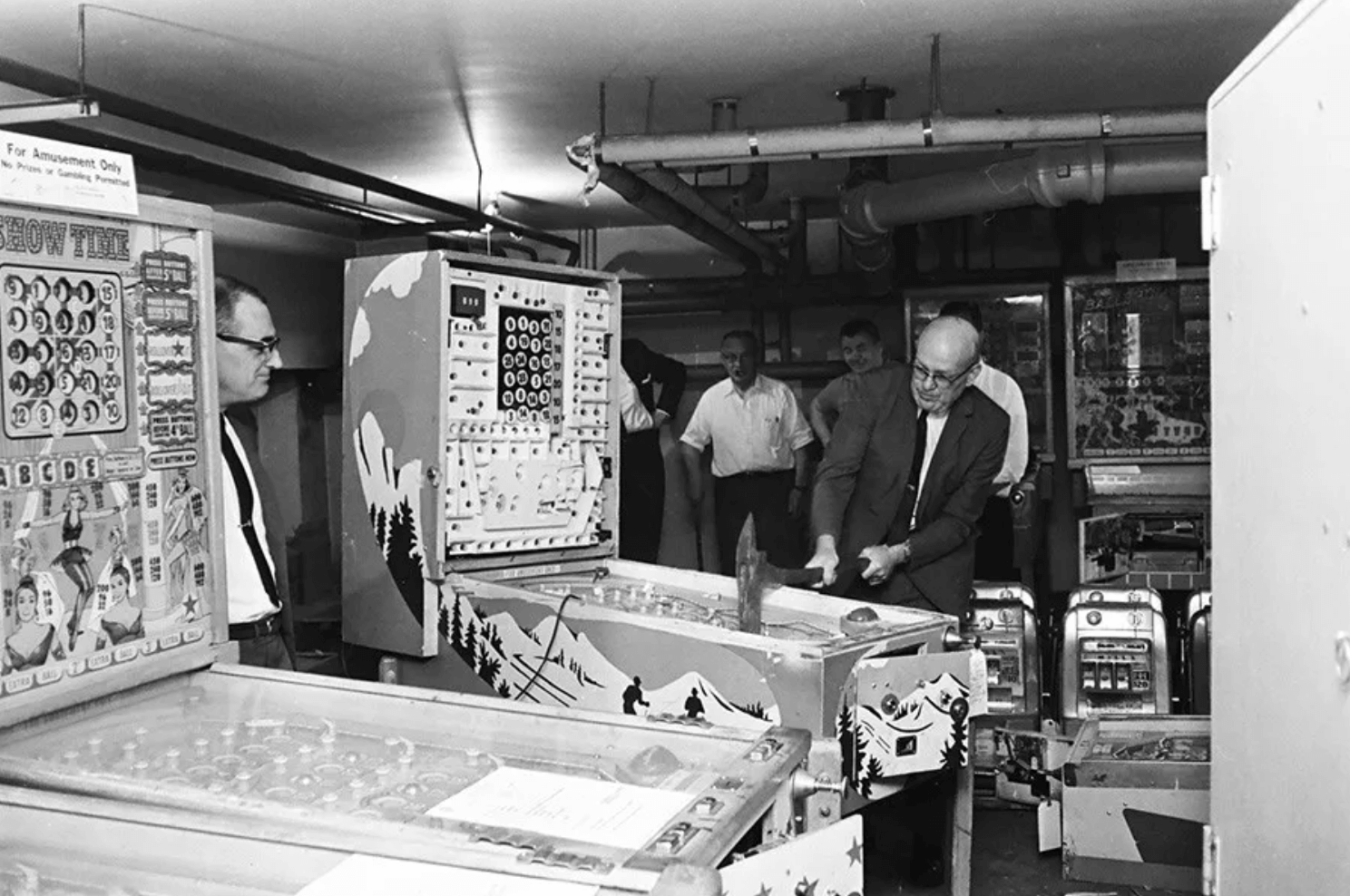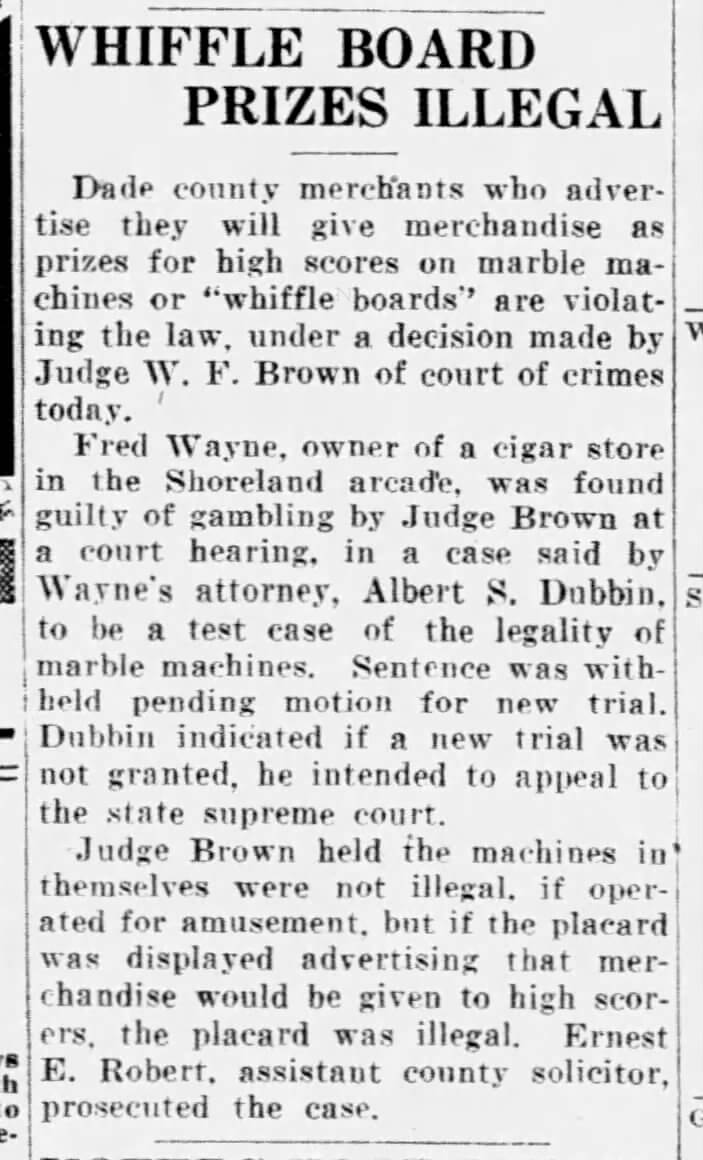How to profit in a recession? Sell pinball machines
During the Great Depression of the 1930s, unemployment reached 25% and those lucky enough to hold onto a job saw incomes drop 43%.
While most industries ranging from steel mills to small shops completely shut down, one new industry exploded. Pinball machines.

As people lost confidence in savings, they sought hope in gambling.
1. Whiffle Board - The original pinball
Pinball origins
Before Christmas in 1930, a carpenter by the name of Alan Paulin couldn't afford to buy his daughter Lois a gift, so he instead built a game out of an old board with holes and nails in it. A marble would be shot up, bounce off nails and randomly land in holes earning different points.
It was a hit with the neighbourhood kids who would line up to ask Lois if they could play with it.
A friend of Alan saw an opportunity to monetize the game by making it coin-operated and placing it in stores to play at a cost of 5c for 10 marbles. Before long they had orders of 2,000 cabinets a month and couldn't keep up with demand. Each Whiffle Board cabinet sold for $100, when at the time a bushel of apples (45 pounds) sold for $0.50.
 Whiffle Board Ad. Internet Pinball Machine Database.
Whiffle Board Ad. Internet Pinball Machine Database.
Shopkeepers began offering merchandise and cash prizes for high points. It was an instant hit and spread across the United States. The game's inventors, salesmen and shopkeepers profited handsomely from the game.
Criminal elements
Before long imitators and criminal elements cast their eyes on the popularity of the Whiffle Board. Most of the pinball machines were manufactured in Chicago, at the time Al Capone and organised crime influenced the city. Pinball machines were connected to gambling, money laundering and gained popularity in bars as prohibition ended.
 Destroying pinball machines. Chicago Sun-Times.
Destroying pinball machines. Chicago Sun-Times.
Local courts banned shop owners from offering Whiffle Board prizes and it was deemed as a form of gambling. Chicago enacted a complete ban on pinball machines in 1936, with all other cities nationwide following suit. It wasn’t until the late 1970s that the ban on pinball machines was lifted across the United States.
 Whiffle Board Verdict. The Miami News, 19 May 1933.
Whiffle Board Verdict. The Miami News, 19 May 1933.
2. What made pinballs successful?
Prospect theory tells us that when facing certain losses, people are more likely to take risks and gamble.
The Great Depression had all the hallmarks for people to lose faith in the old virtues of education, work, savings and delayed gratification.
Prohibition was still in force, with entertainment and hope in short supply. People resorted to small gambles in the hopes of recovering their losses.
An interesting side light of the depression was that unemployed people became interested in small gambling games and the inventors of these games made considerable money. Some of the more popular games were the Whiffle board - a marble game charging 1c or 5c.
People lost all confidence in the old virtues of saving. They were willing to bet small amounts in the hope of getting large returns. They wanted something to occupy their minds and they wanted some gamble to buoy their hopes.
31 August 1936. Excerpt from Roth, B. The Great Depression: A Diary
3. Modern day startup examples
Modern day examples include cryptogames like CryptoKitties and Axe Infinity which allowed people to buy, breed and sell in-app collectibles for the potential to make money.
Axe Infinity in particular exploded in popularity in developing countries during the COVID-19 pandemic where countless industries were out of work, at home and bored with not much to lose.
A more reputable example is AirBnB. Born on the eve of the 2008 financial crisis, AirBnB offered a way for people to supplement their income by taking the risk of inviting strangers to stay in their own home.
A successful venture during a recession doesn't always have to be sinful.
References
- Great Depression Facts. FDR Library
- Smith, A. The History of Coin-Op Part 3, Pinball [Blog post]. They Create Worlds.
- Roth, B. Diary Entry September 15, 1931. The Great Depression A Diary
Want more tips?
Get future posts with actionable tips in under 5 minutes and a bonus cheat sheet on '10 Biases Everyone Should Know'.
Your email stays private. No ads ever. Unsubscribe anytime.